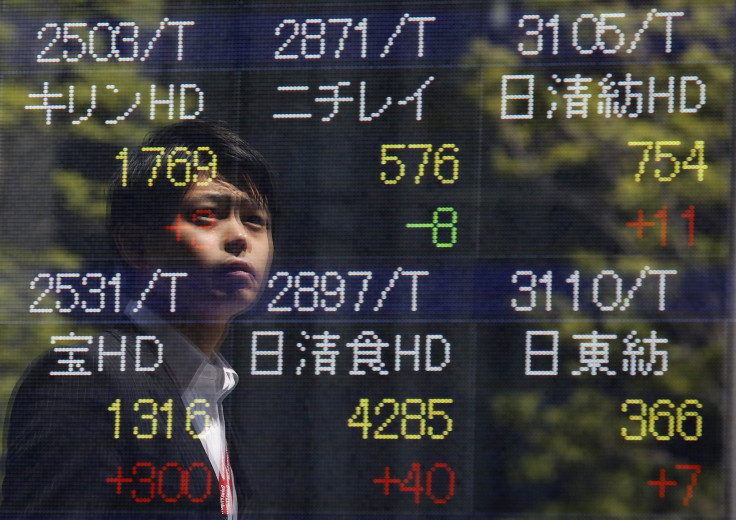Japan’s Overbought Nikkei Stock Exchange Sheds Over 5% Thursday But Still Up 30% From Start Of Year

Tokyo’s benchmark Nikkei 225 stock index extended its correction on Thursday, shedding 5.15 percent and raising questions about the long-term effects of the country’s ambitious fiscal and monetary policy shifts under Prime Minister Shinzo Abe and Bank of Japan Gov. Haruhiko Kuroda.
This is the second steep drop in eight days; on May 23, the index took a 7 percent dive in the single-largest drop since the March 2011 Tōhoku earthquake and tsunami.
Major companies saw single-digit retreats. Honda Motor Co. Ltd. (TYO:7267) shed more than 3 percent while Toyota Motor Corp. (TYO:7203) and Sony Corp. (TYO:6758) were down between 2 and 3 percent.
Fast Retailing Co Ltd (TYO:9983), which owns the Uniqlo causal clothing brand, lost more than 11 percent, thanks largely to recent lackluster retail sales and wage figures that suggest Abenomics, as the fiscal policy is called, hasn't translated into improvements in the real economy.
The Nikkei is still up more than 30 percent from the start of the year with several major export-driven companies benefiting from a weakening yen.
The recent correction has some traders wondering if the Bank of Japan’s decision to double the country's money supply – one of the pillars of Abenomics – will have lasting effects, or whether it will push up borrowing costs and slow growth.
Separately, worries that the U.S. will stop printing money as part of its quantitative easing policy sent the dollar down against the yen and the euro.
© Copyright IBTimes 2024. All rights reserved.












